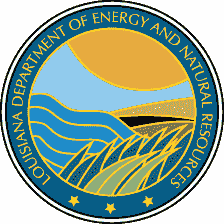Energy
Land Loss in 2004 Hurricane Season Could Heighten Risks to Coastal Residents and National Energy Supply
WASHINGTON, D.C.—This season's hurricanes could further diminish the land along Louisiana's coast that serves as a natural protection for both human and wildlife inhabitants, and also for pipelines that deliver 25 percent of the oil and gas that powers the United States. This coastal area, the seventh largest delta in the world, is already disappearing at the equivalent rate of a football field every 30 minutes, and when a hurricane or tropical storm strikes the coast, the land loss accelerates, putting people, the fragile ecosystem and the nation's energy supply at greater risk.
"This year, Louisiana's citizens and our coastal wetlands are exposed to danger and destruction as never before," said Louisiana' s governor, Kathleen Babineaux Blanco. "Because we continue to lose so much of our valuable wetlands, people living along our coast are more vulnerable to the impact of a strong hurricane. For many communities, the only thing standing between them and a devastating storm surge is our vanishing coastal wetlands."
"Louisiana's natural resources are shared with the rest of the nation and a serious hurricane could have an impact that reaches far beyond our state's boundaries," added Scott Angelle, secretary of the Louisiana Department of Natural Resources.
The National Oceanic and Atmospheric Administration (NOAA) recently announced that this year's Atlantic hurricane season, June 1 through November 30, could bring above normal activity with the possibility of 12 to 15 tropical storms. Six to eight of these systems could become hurricanes, with two to four of them becoming major hurricanes.
"With the beginning of the 2004 hurricane season, Louisiana is even more vulnerable to storm surge and storm wave inundation than it was last season because of the continued loss of barrier islands, beaches and wetlands," said Dr. Greg Stone, director of Louisiana State University's Coastal Studies Institute. "Research has shown that the coast has reached a critical state where less severe events, for example tropical storms, are inundating the coast with greater severity than in the past."
America's WETLAND: Campaign to Save Coastal Louisiana has recruited Mr. Bill of Saturday Night Live fame, who is recognized by millions worldwide for surviving tough situations, to educate the public about the increased risks associated with hurricanes. He will be used as part of the campaign's "Don't Be a Big Loser" and education initiatives, which aim to raise awareness about what Louisiana, the nation and the world will lose if this region of world ecological significance and importance to the nation's economic and energy security vanishes.
Walter Williams, creator of Mr. Bill and a Louisiana native, donated his time and talent to create a series of public service announcements (PSAs) that will combine comedy with serious messages about coastal land loss. The first PSA will premiere June 1, featuring Mr. Bill suffering the wrath of "Hurricane Sluggo."
"The state is washing away. In fact, in a little more than my lifetime, about 2,000 square miles of land have disappeared, which is roughly the size of Delaware," said Williams. "This should be a national concern not only because of its devastating environmental impact, but also because of the economic consequences of losing Louisiana's wetlands."
The America's WETLAND campaign was launched by the State of Louisiana to gain support for its efforts to conserve and save coastal Louisiana. The initiative is supported by a growing coalition of world, national and state conservation and environmental organizations and has drawn private support from businesses that see wetlands protection as a key to economic growth. To find out more about America's WETLAND: Campaign to Save Coastal Louisiana, visit www.americaswetland.com.
News Archives »